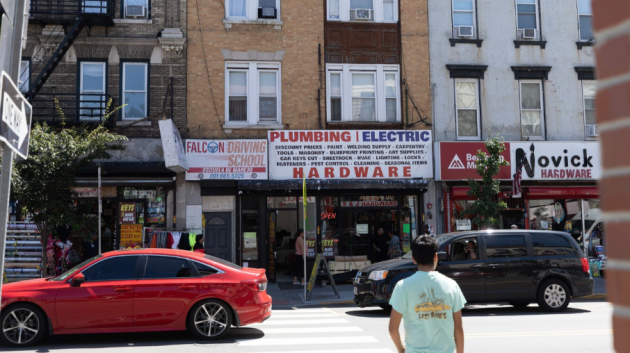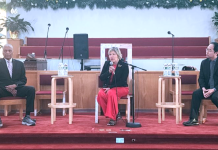The New Jersey Attorney General’s Office and the state Department of Environmental Protection has filed a brief to compel the former owner of a Jersey City dry cleaner to remediate the site, also recommending a $500,000 fine.

By John Heinis/Hudson County View
“Thanks to Governor Murphy, New Jersey is a national leader in the fight to secure environmental justice in communities that for far too long were ignored,” Attorney General Matt Platkin said in a statement.
“On our watch and in conjunction with the DEP, we have filed 62 enforcement actions and secured nearly $28.8 million in penalties and more than $1 million in damages for the State. And our efforts achieve environmental clean-up and compliance with laws aimed at restoring New Jersey’s environmental resources for the benefit of all to improve public health.”
The site of this former dry cleaner in Jersey City, formerly Sparkle Cleaners at 304 Central Ave. in the Heights, is contaminated with TCE and PCE, both of which pose a threat to human health.
The owner has disregarded a previous consent judgment and a separate, subsequent court order to clean up the site and pay liens placed on the property for violating environmental laws.
The current motion resurrects the prior lawsuit and seeks to force the owner to remediate the site, including cleaning up the TCE and PCE contamination, and pay sanctions for violating the previous order.
“The Shah Defendants have ignored the 2013 Consent Judgment and the 2019 Order for ten years now. The Department requests that this Court impose a civil penalty of $500,000, which represents the amount of civil penalties that the Shah Defendants would face for one day of each year they have ignored the 2013 Consent Judgment and the 2019 Order,” the brief, filed by Deputy Attorney General Paige Hensor today, says.
A Union City case dating back to 1990 was mentioned as well.
“This case arises from the 1990 gasoline spillage from Martin Service Center Corporation’s underground storage tanks (USTs) in Union City and failure to comply with two subsequent DEP orders directing removal of the USTs,” the AG’s office wrote.
“Gasoline and its components pose threats to the environment and public health when they enter the soil and the groundwater, and persist in soil for long periods of time. The action seeks to enforce the two previous DEP orders and compel the investigation and cleanup of the site to reduce potential health and environmental risks, in addition to seeking civil penalties.”
Platkin and LaTourette announced four environmental lawsuits and six enforcement actions today as what they say showcases their commitment to environmental justice.
“These cases reflect DEP’s ongoing commitment to ensuring the cleanup of contaminated sites, especially those in communities with environmental justice concerns where the proliferation of contaminated sites is often greatest,” LaTourette added.
“Today’s actions embody DEP’s steadfast priority to use all available legal tools to hold accountable those who have caused or contributed to environmental injustice. My DEP colleagues and I thank Attorney General Platkin for his partnership in protecting public health and combating historic injustices that have burdened low-income and minority communities with a disproportionate amount of pollution.”











A fine serves no purpose and is an attempt to (righteously) wound or kill the perpetrators, who has already resisted for 10 years, so who in the name of all that’s right and holy is having a wet dream that a fine will move the needle on the thermometer of this thing?
C’mon people, get right with reality, use a little authenticity and integrity. There’s a way to get the poison out of the ground, we know how. Turn your back in the god of money and address the contamination directly. Go there with shovels and extractors and get the job done.
After it’s cleaned up and made safe, there’s plenty of time to squabble about who’s going to pay, and who isn’t.